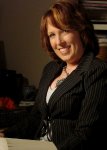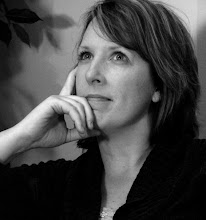Dedicated to courageous teachers everywhere who make a difference in students’ lives
My fifth-grade teacher introduced me to women’s liberation in the mid-1970s. The concept was a new one to me and to my classmates, an ideology that some of the female fifth-graders, including me, quickly embraced.
The teacher, who emphasized the Ms. prefix to her name, read a chapter to our class each day from The Emancipation of Clementine. As an adult, I’ve searched for this book, without success. It marked an important turning point in how I defined myself, and I am sad that the book is lost to me.
This book was a coming-of-age story, detailing the liberation of a woman named Clementine. I’m sure the book was not a favorite of the boys in my class—except they did seem to take great pleasure in the bra-burning episode. For us girls, however, the book took on great meaning as the concept of equality burgeoned in our otherwise busy brains.
One spring day, which Ms. Teacher may consider her coup de maitre, some of the more inspired females exhibited our first liberating tendencies. We had no bras to burn; for that matter, our pre-pubescent bodies were not yet ready for that constrictive tether of womanhood. Instead, at recess, we set out to rescue a playground tire from the creek at the bottom of the hill where some pranksters had left it. However, since it had rained most of the preceding week, the ground was slippery, the tire muddy and heavy with water, and the creek bed flooded.
Nevertheless, liberated women that we were, and seeing no males equal to the job (or interested), four of us rolled up our sleeves and marched en masse down the hill to the creek and straight into the filthy water. We pushed and pulled and strained at that mud-laden tire, finally freeing it from the creek. We rolled the tire up the hill and laid it to rest in its original spot on the playground. We congratulated one another on a job well done and enjoyed the last few minutes of recess, even as we shivered with the cold and wet.
The school bell rang and we returned to class in our sodden clothes. We received several suspicious looks from our classmates, as well as the teacher, although nobody commented on our sorry state. As our clothes dried, our bodies began to itch, and our mud-stained fingers left tattle-tale marks on our papers and books.
When school let out for the day, the contingent of liberated women marched from the fifth-grade classroom for home, eager to describe our miraculous deed to our parents. Surprisingly, my mother was not as understanding as I had hoped; in fact, she seemed much more concerned with my soiled clothing than with the incredible blow dealt for feminism. Her scolding and her scornful expressions as I talked about our inspiration, Clementine, caused me to waiver in my dedication to the feminine cause.
The next day, our teacher began to read to us from a new book. I was surprised and disappointed, because we hadn’t finished hearing about Clementine’s feminist adventures. At recess, I discovered that all four mothers had called to discuss the “liberation event,” as it was quietly called, with our teacher, who had been reprimanded by the principal. From then on, liberation was no longer taught in our classroom, and Clementine’s story faded from the class’s collective memory.
It wasn’t until much later in life that I at last understood what our teacher had risked to introduce us to Clementine. Her willingness to put her job on the line to expand our narrow view of womanhood resonated with me. I remembered the elation the four of us felt as we outperformed the males by engaging in our rescue operation; I remembered the invigorating rush of adrenaline as we returned to class sodden, muddy, having achieved a goal we never before would have considered; I remembered the powerful feeling of working together as a group of females to accomplish a task that we had previously thought of as “men’s work.” In our determined march down the hill toward the creek, inspired by the story our teacher shared with us, we sowed the seeds of the women we would blossom into: potent women who would choose the direction of their lives despite (or perhaps, because of) the roles that society would otherwise attempt to impose upon us.
Health Update 4
8 years ago





